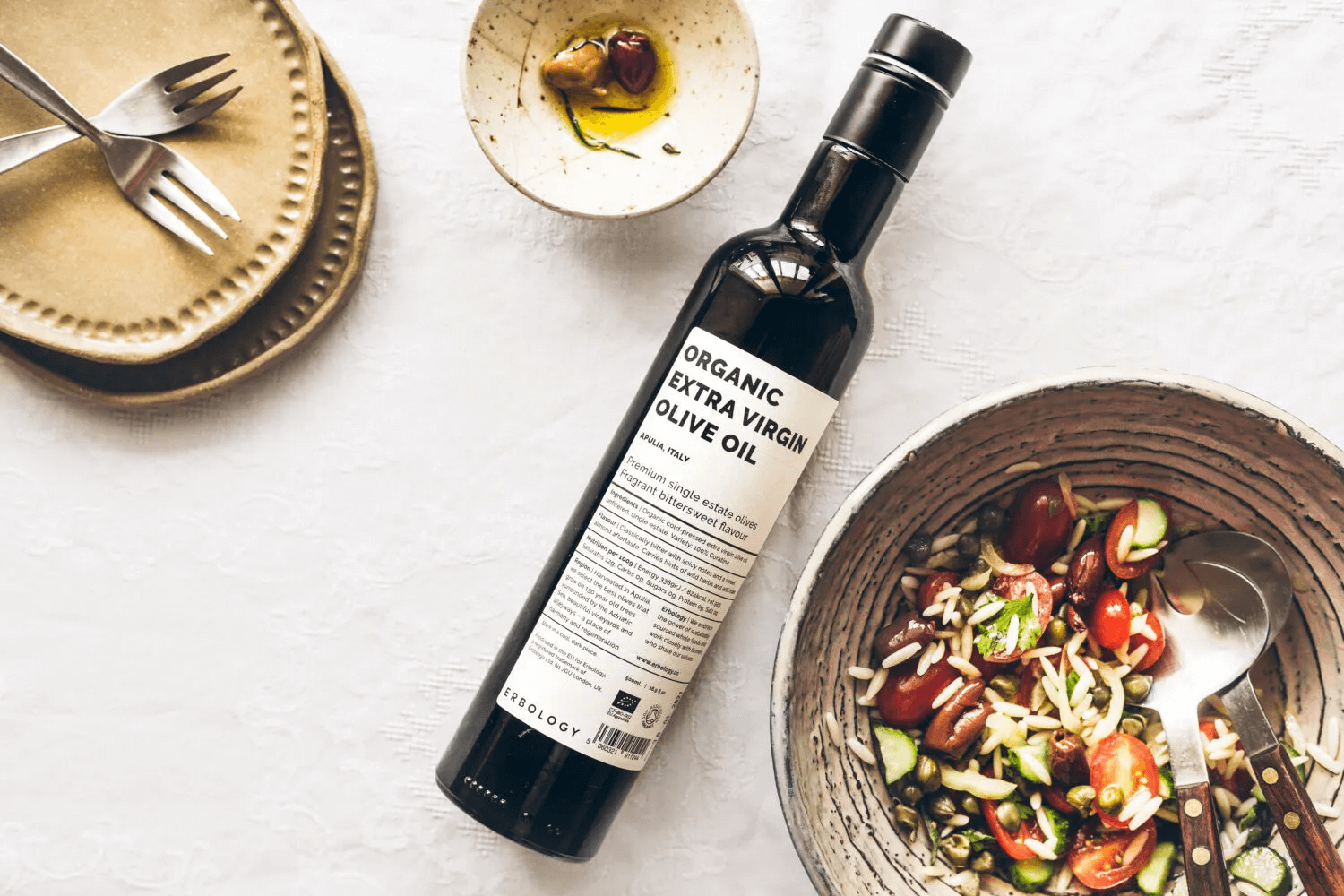04 May 2021
Is olive oil good for your skin?
Rich with antioxidants and anti-inflammatory properties, this plant-based oil soothes and nurtures your skin so it can excel at its job.
But applying it safely is important, so you might not want to trade in your usual nighttime moisturiser just yet.
The skin and antioxidants
We don’t want to get too nerdy on you but here’s some facts about the skin: It’s the largest organ in our body and has three main layers.
The outermost layer that you can see is called the ‘epidermis’. The ‘dermis’ underneath is where you’ll find sweat and oil glands, hair follicles, connective tissues, and nerve endings. (This is where most of the protective action takes place.) The third layer is the ‘subcutaneous fat’ and provides insulation to keep us warm.
Our skin is the site of constant oxidative reactions that need to be neutralised. That’s where antioxidants come in, because their job is to neutralise these reactions.
An imbalance of antioxidants may induce or aggravate skin defects (dermatoses), therefore consuming antioxidants and applying them to the skin could help heal and prevent damage.(2)
Olive oil nutrients for the skin
Olive oil is full of antioxidants and anti-inflammatory nutrients, including the most potent free radical neutraliser in the body—vitamin E.
Vitamin E doesn’t only protect cells from this damage, but can also prevent the production of free radical cells altogether.(13)
Olive oil also contains a ton of phenolic compounds. These compounds come from polyphenols, which are micronutrients found in plant-based foods and they’re well known for their antioxidant and anti-inflammatory properties.
Hydrophilic phenols, the most abundant phenols in olive oil, actually have more antioxidant properties than vitamin E! And oleocanthanal phenols, another type of phenols in this oil, possess anti-inflammatory properties similar to ibuprofen.(1)(6)
Phenolic compounds also exhibit anti-inflammatory activity when included in a regular diet, so be sure to reap these benefits by drizzling some EVOO over your salad or a slice of freshly baked bread.(6)
Olive oil for sun protection
The sun does wonders for uplifting our moods and inhibiting the production of vitamin D to keep our bones, teeth, and muscles healthy, but its UV (ultraviolet) rays are detrimental for our skin.
Overexposure can cause premature ageing, unsightly spots, and lead to skin cancer. It also depletes us of vitamin E, which you now know is vital for our skin’s health.(4)
Since olive oil is rich in vitamin E, consuming it will provide your skin with extra vitamins you may lose through sun exposure.
Having said that, we advise you to wear a natural sunscreen when you are exposed to direct sunshine. Olive oil’s protective benefits cannot be used in place of it.
![]()
Applying olive oil topically
This section should be read carefully, as applying olive oil directly to your skin can have both beneficial and harmful effects. While it has a positive role in promoting wound healing, it has a detrimental effect on the epidermis and skin barrier function.(6)
Wound healing benefits
The skin’s wound healing abilities are truly incredible and one of the only bodily functions that we can see right before our eyes. Studies show that applying olive oil topically to the wound can help improve the healing process.(12)(7)
The healing process has four phases, homeostasis, inflammation, proliferation, and tissue remodelling.
First, the blood around the cut clumps together—clots—to prevent further blood loss. After blood clotting around the wound has occurred, the area becomes inflamed to control bleeding and prevent infection, as well as allowing nutrients and oxygen to the wound.
Then white blood cells arrive to fight infection and clean out the wound. This is why you might see clear fluid around the cut. Red blood cells help create collagen, which form the foundation for new tissue. Lastly, the new tissue strengthens, but this part of the process take a few months, or even years to complete.(14)
Polyphenols are able to regulate the immune system by affecting the body’s defences, including the growth and activity of white blood cells. Therefore olive oil can help protect the skin from the inside thanks to its polyphenols.(10)
Evidence for olive oil’s wound healing properties
One study investigated the healing effects of applying olive oil on pressure ulcers in mice. Also known as ‘pressure sores’ or ‘bedsores’, pressure ulcers are injuries to the skin and underlying tissue caused by prolonged pressure, like being in a wheelchair or bedridden for long periods of time.
The results of this study concluded that, compared to the control group (water), olive oil improved wound healing by reducing oxidative damage and inflammation and promoting skin reconstruction and wound closure.(12)
Another study tested the healing effect of olive oil and sea buckthorn on third-degree burns on rats. Third-degree burns destroy all layers of the skin, including the fat beneath it.
The rats were divided into 5 groups and treated with sea buckthorn, olive oil, a sea buckthorn/olive oil mixture, silver sulfadiazine, and normal saline as the control group. The wound healing process was observed for 28 days.
The results show that wounds healed faster in the sea buckthorn, olive oil, and mixture groups.
The mixture of sea buckthorn and olive oil best controlled any secretions and had more developed tissue. This suggests that the two oils together show a synergetic effect when treating wounds and could be used as an alternative dressing for full-thickness burns.(7)
Next time you get a nasty burn from touching a hot pan, no need to run to get a plaster. Just reach into the cupboard and dab a bit of olive oil on the spot!
Related reading
